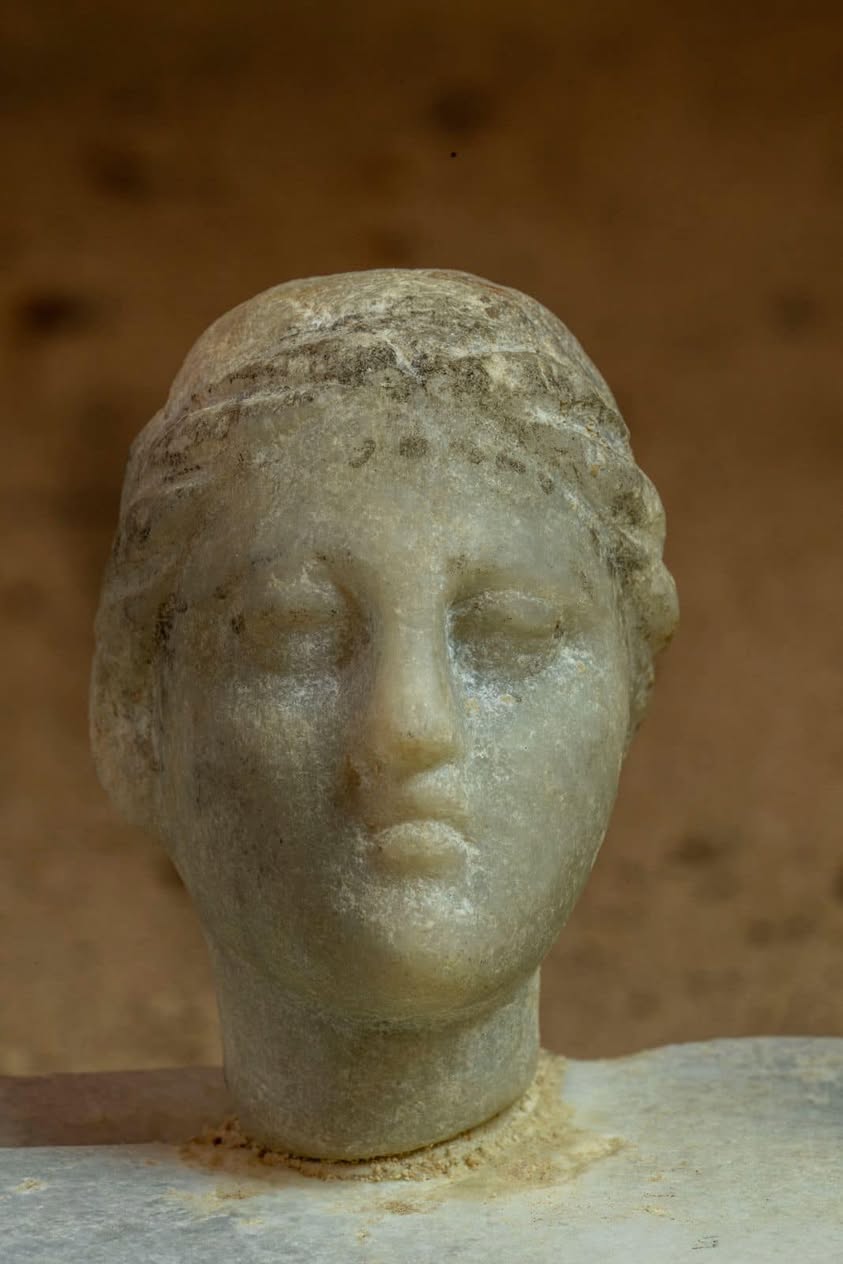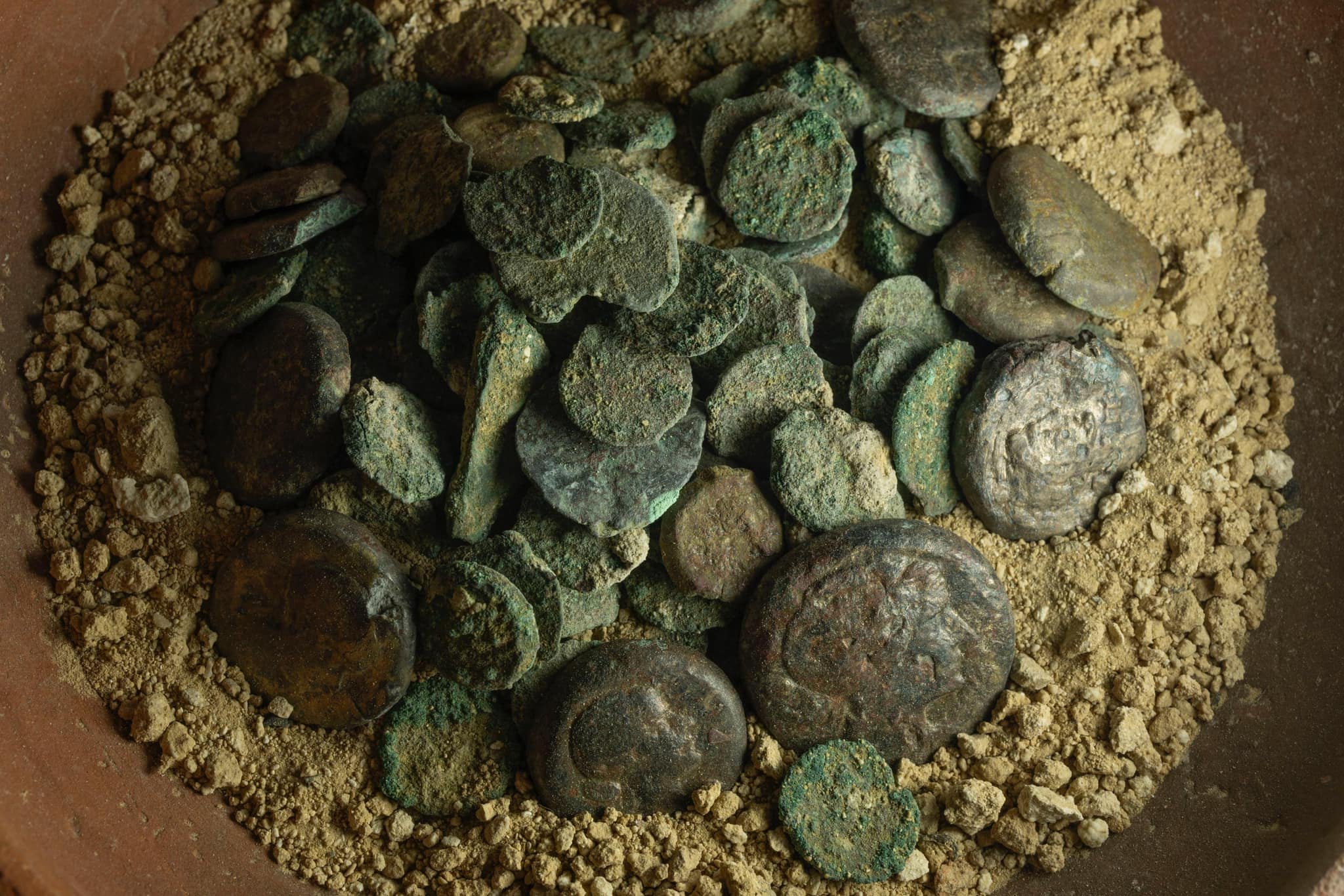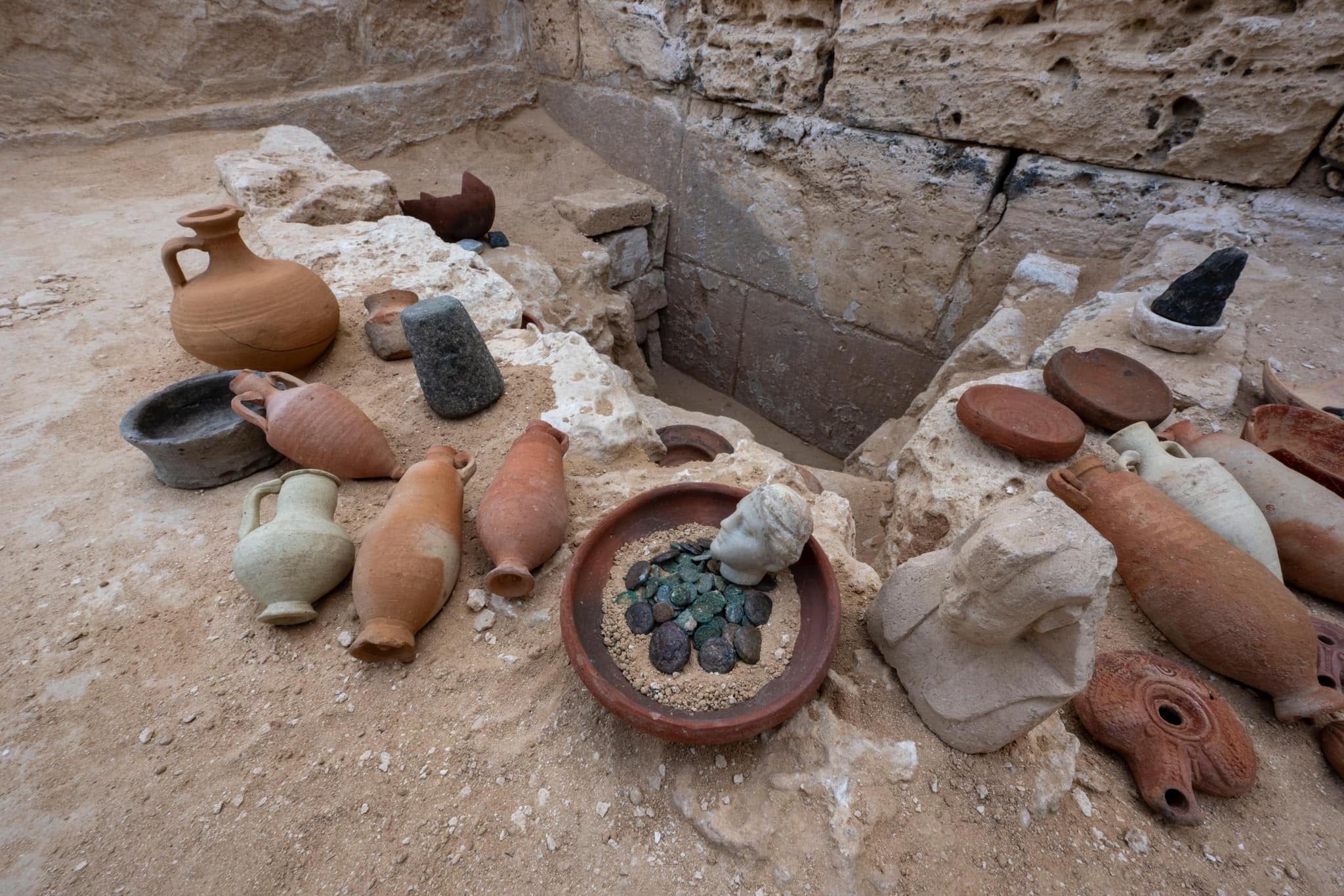Ancient statue discovered at Egyptian temple may be rare Roman bust of Cleopatra
Not everyone is convinced statue belongs to legendary queen
Archaeologists have found a white marble statue of a woman wearing a royal crown under the walls of an ancient temple and suspect it may be of the famous Egyptian queen Cleopatra VII.
The dig also revealed funerary and meteorological artefacts hidden under the outer wall of the Tapuziris Magna temple in the region of western Alexandria.
The figure of a woman in question was found alongside a limestone bust of a king wearing a “Nemis”, a kind of striped headcloth worn by the pharaohs.
Researchers also found some 350 coins, many showing an image of Cleopatra VII, a pottery set, oil lamps, limestone pots for food and cosmetic preservation, several bronze statues, and an amulet engraved with the phrase “Ra’s justice has risen”. A bronze ring dedicated to the goddess Hathor was unearthed as well.

The artefacts helped date the temple to the Late Baltic Age and the construction of its walls to the 1st century BC.
Researchers said the statue of the lady with the crown was likely of Queen Cleopatra VII, who famously had relationships with Julius Caesar and Mark Antony.

But not everyone was convinced.
“I looked at the bust carefully. It is not Cleopatra at all. It is Roman,” former Egyptian minister of antiquities Zahi Hawass told Live Science.
He noted that during the legendary queen’s time, the pharaohs were portrayed with Egyptian and not Roman art styles as was the case with the newly discovered statues.
Some archaeologists said that the bust likely belonged to a princess who lived after Cleopatra’s time.

At the archaeological site in western Alexandria, researchers also found the remains of a Greek temple from the 4th century BC which appeared to have been destroyed between the 2nd century BC and the beginning of the AD.

This temple, researchers said, was located near a deep tunnel system stretching from Lake Marriot to the Mediterranean.
A large tomb containing 20 cellars and another tomb under an ancient lighthouse were also found.
The Egyptian Ministry of Tourism and Antiquities lauded the findings as pivotal to a better understanding of the late Ptolemaic period.
Join our commenting forum
Join thought-provoking conversations, follow other Independent readers and see their replies
Comments
Bookmark popover
Removed from bookmarks